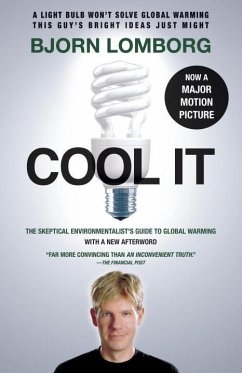Bjorn Lomborg argues that many of the elaborate and staggeringly expensive actions now being considered to meet the challenges of global warming ultimately will have little impact on the world's temperature. He suggests that rather than focusing on ineffective solutions that will cost us trillions of dollars over the coming decades, we should be looking for smarter, more cost-effective approaches (such as massively increasing our commitment to green energy R&D) that will allow us to deal not only with climate change but also with other pressing global concerns, such as malaria and HIV/AIDS. And he considers why and how this debate has fostered an atmosphere in which dissenters are immediately demonized.
Dieser Download kann aus rechtlichen Gründen nur mit Rechnungsadresse in A, B, BG, CZ, D, DK, EW, E, FIN, F, GR, HR, H, I, LT, L, LR, NL, PL, P, R, S, SLO, SK ausgeliefert werden.

